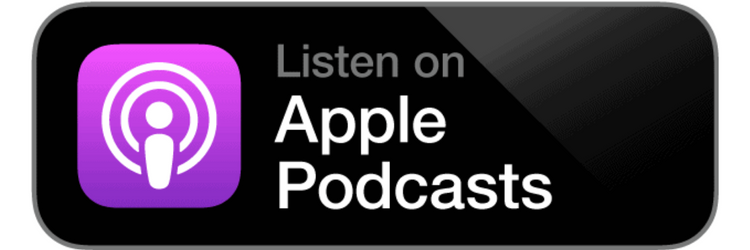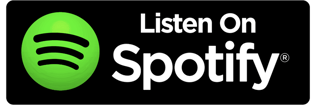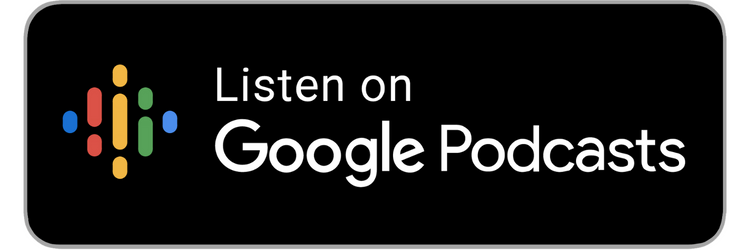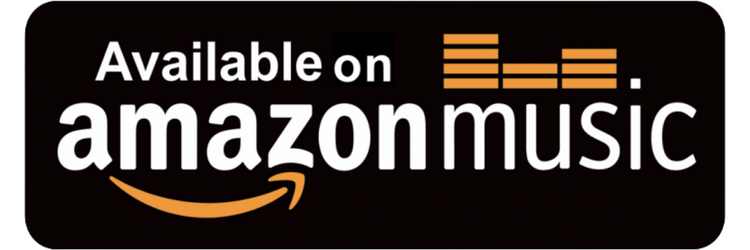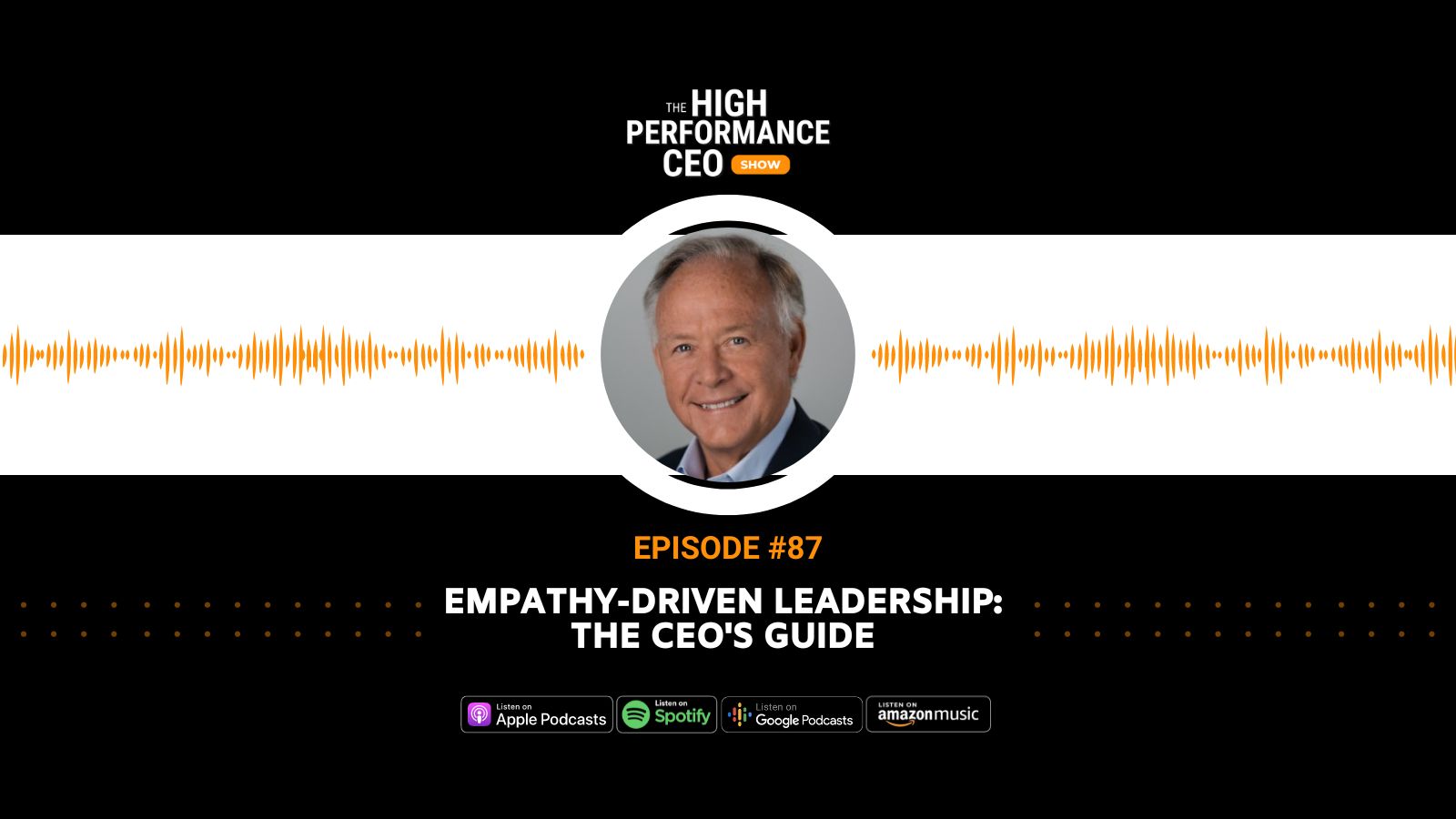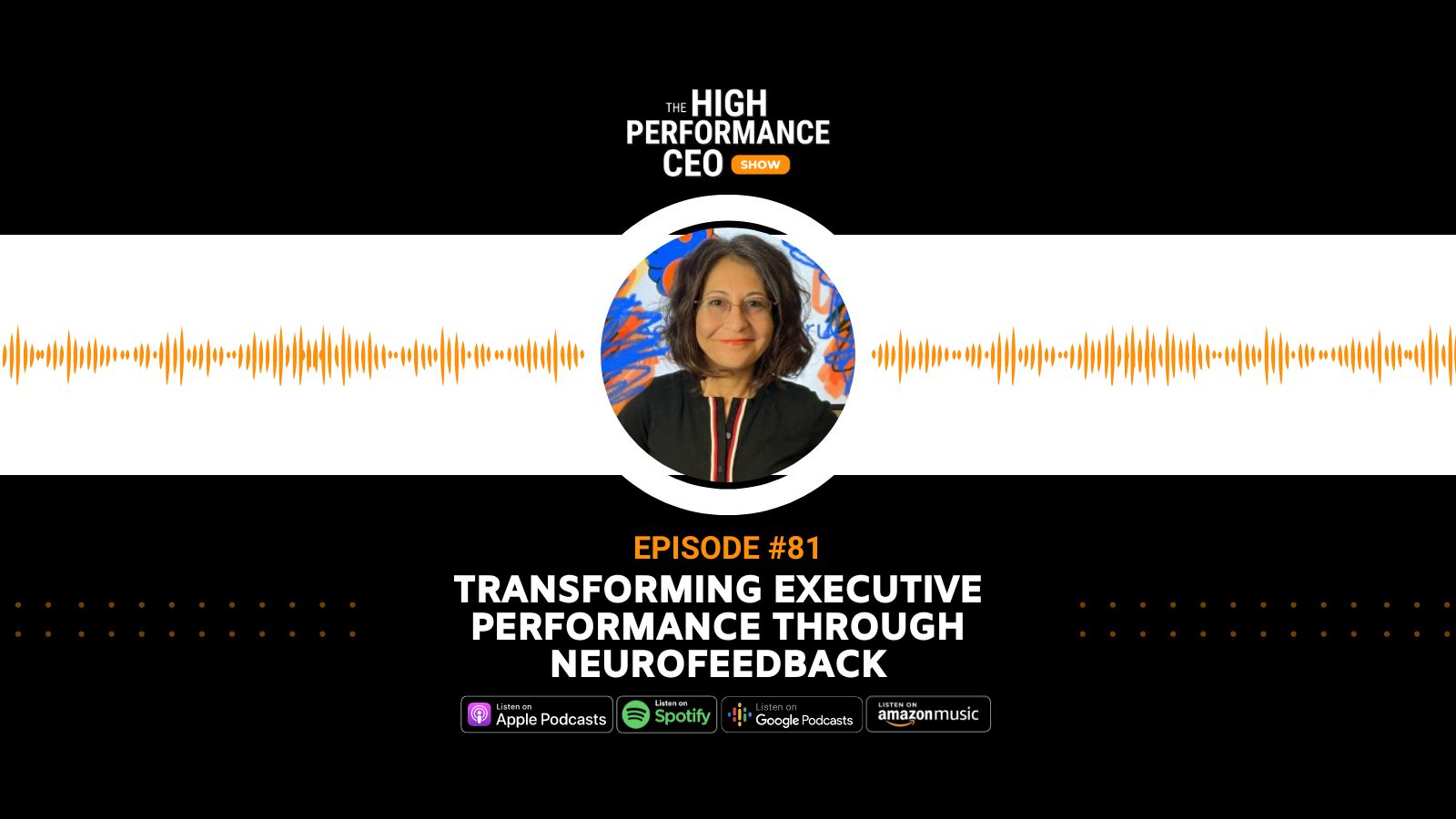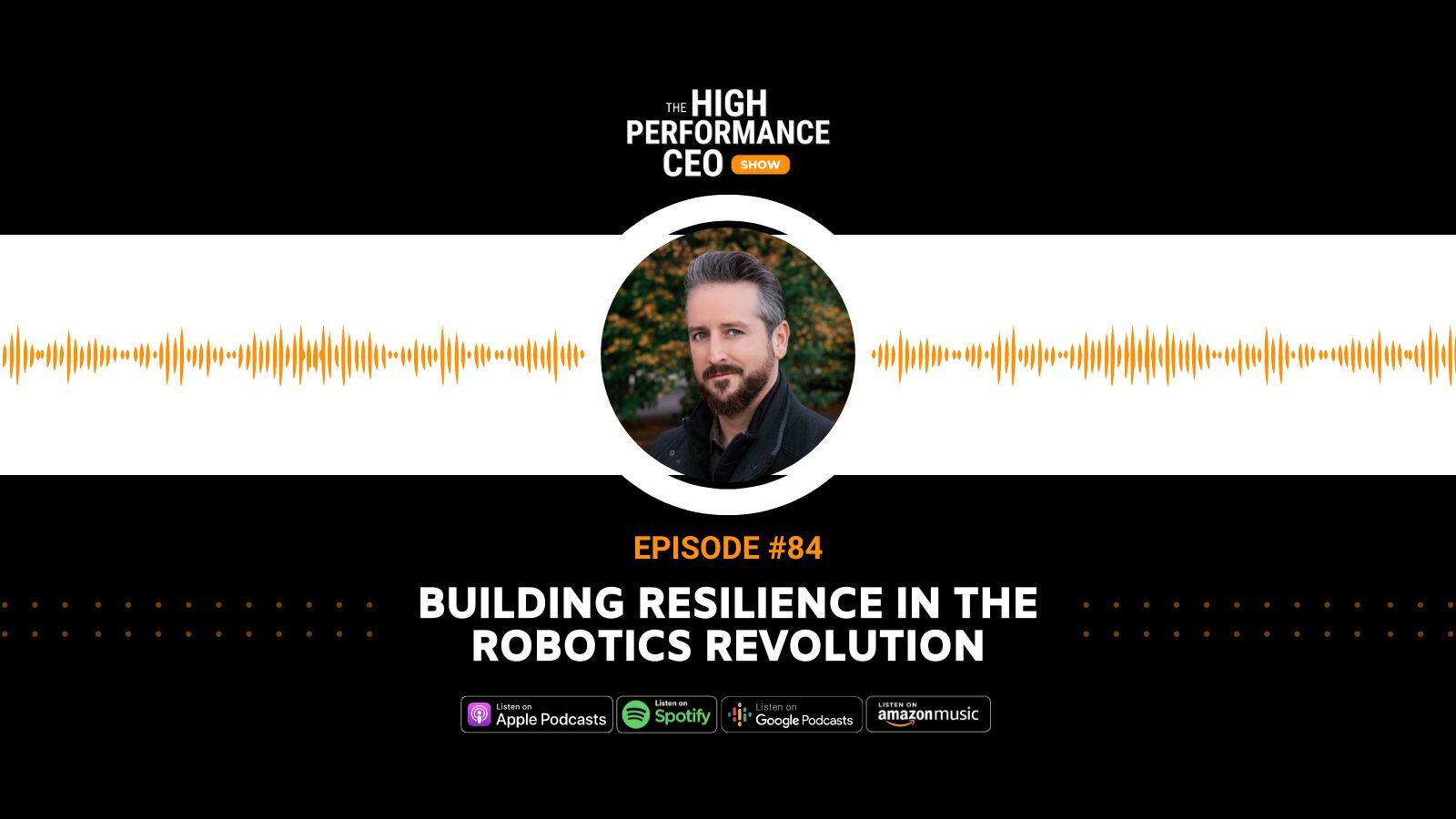19 min read
Sleep Your Way to the Top: Bijoy John's CEO Success Secrets
Sebastian Schieke
:
Mar 29, 2024 1:00:00 PM
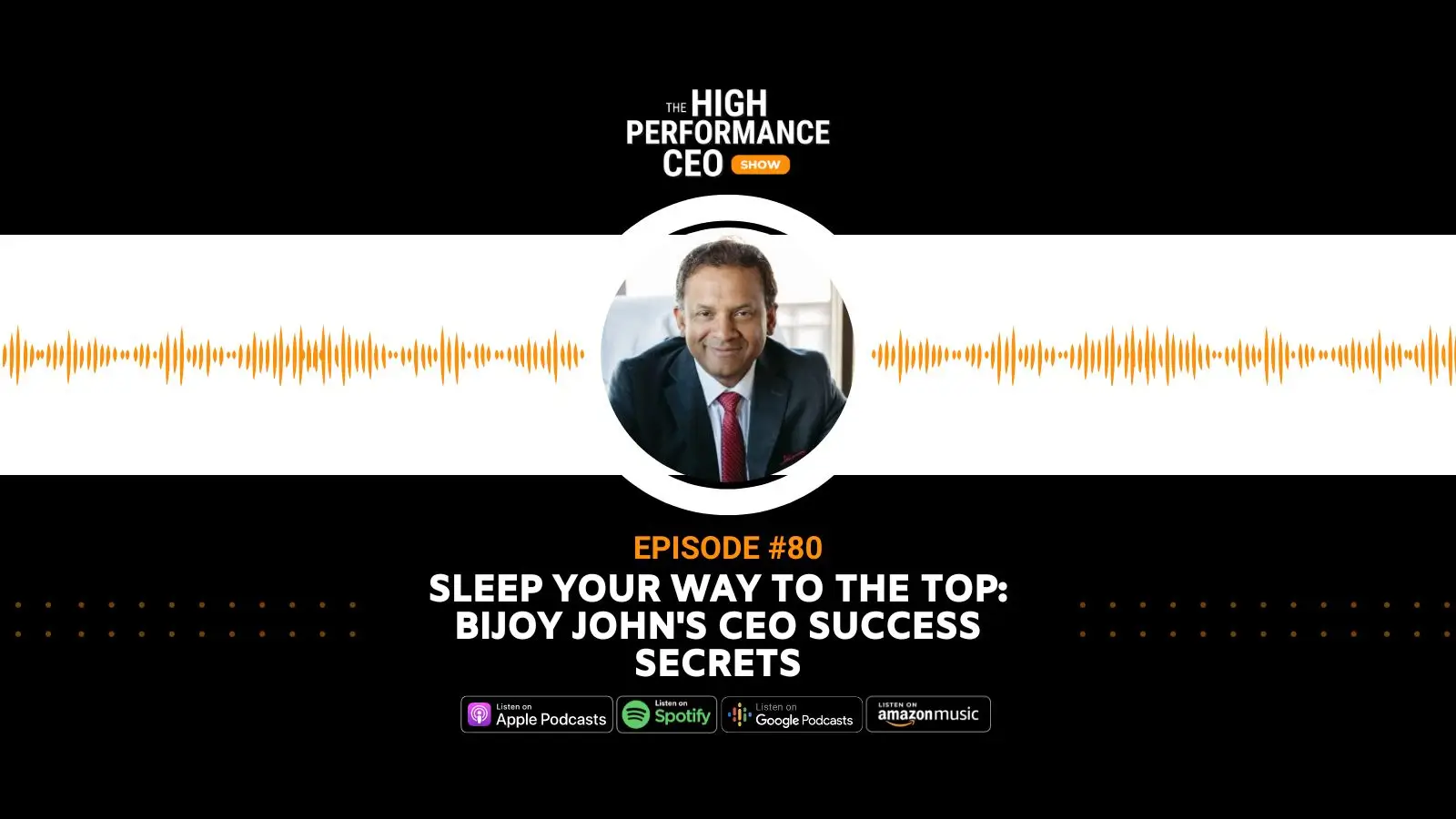
Episode Summary:
Maximize your efficiency and well-being through the science of sleep with Bijoy John. This episode shows how CEOs can use sleep to boost creativity, make better decisions, and promote a healthy culture in their organizations. Get some practical tips and insights to make sleep work for you as a strategic advantage in leadership.
About Bijoy John:
- Founder of a Sleep Improvement Institute: Bijoy John set up an institute to tackle sleep problems and boost overall sleep health in people, focusing on using research-backed strategies and interventions.
- Authorship and Research on Sleep: Wrote a detailed book on improving sleep, demonstrating his expertise in the field and making a big impact on public awareness about sleep health.
- Leadership and Innovation in Sleep Science: Developed new methods for handling sleep issues, using tech, psychology, and lifestyle changes to boost sleep quality and well-being.
Key Takeaways:
- Prioritize Sleep for Better Leadership: Sleep isn't just about personal health; it's a key leadership tool that boosts decision-making, creativity, and productivity.
- Educate and Lead by Example: Show your team how to sleep well. A well-rested leader sets the tone for a healthy, high-performance work environment.
- Address and Support Sleep Challenges: Recognize and provide resources for sleep issues among your team to improve overall well-being and efficiency.
- Invest in Sleep Education and Resources: Use Bijoy John's tips and tricks to create a work environment that appreciates the importance of sleep for success and innovation.
- Understand the Economic and Health Costs: Acknowledging how bad sleep affects health and business results can spark changes and encourage better sleep habits throughout the organization.
Why It's Important for CEOs Like You
This episode gives CEOs insights, highlighting how sleep is key for leadership. Bijoy John offers practical tips to make sleep a super tool for leaders. Making sleep a priority boosts well-being and helps create a high-performance culture. By highlighting the importance of sleep, leaders can effectively tackle the drawbacks of sleep deprivation, leading to personal and business success. It reminds CEOs to rethink their sleep habits, unlocking potential for innovation and efficiency in their organizations.
What CEOs Can Start Doing
- Set a Personal Sleep Goal: Make sure to aim for a set number of hours of sleep each night to show how crucial rest is.
- Incorporate Sleep Education into Training Programs: Add some sessions or resources on sleep health to your organization's learning and development efforts.
- Evaluate Workload and Stress Levels Regularly: Keep an eye on and adjust work expectations to prevent overwhelming employees, nurturing a culture that respects work-life balance.
- Initiate a Sleep-Friendly Policy Review: Check out your company's policies to make sure they support flexible schedules and rest breaks.
- Promote Use of Sleep Tracking Tools: Encourage your team to use apps or devices that monitor sleep patterns, offering insights for improvement.
- Host Sleep Awareness Sessions: Get experts to lead sessions or workshops on boosting sleep quality and how it affects performance.
- Lead by Example: Share your sleep improvement efforts and successes with your team to inspire similar actions.
Conclusion
Bijoy John points out sleep's vital but often forgotten role in achieving leadership greatness and business success. We've looked at practical tips, key insights, and useful advice for CEOs. We discuss how better sleep can amp up decision-making, creativity, and productivity, leading to a healthier and more efficient work environment.
CEOs are encouraged to lead by example by valuing sleep and promoting sleep education in their company culture. The key idea here is that leaders can unlock their full potential and guide their organizations to success by improving sleep habits.
Chapters
Introduction to the Importance of Sleep (00:00-01:28)
Overview of changing perceptions among high-performing CEOs regarding the significance of sleep for health and efficiency.
Bijoy John's Expertise on Sleep (01:28-03:22)
Introduction to Bijoy John's background, book, and institute focusing on sleep improvement strategies.
The Superpower of Sleep and Its Impact (03:22-04:07)
Discussion on the physiological and cognitive benefits of adequate sleep for high performance.
"Sleep Now" Strategy Overview (04:07-10:36)
Detailed explanation of the "Sleep Now" acronym and strategies for better sleep, including practical tips on sleep hygiene and routine.
The Cost of Poor Sleep (10:36-11:32)
Insights into the economic and health implications of sleep deprivation in the workplace and society.
Addressing Sleep Disorders and Insomnia (14:07-15:41)
Differentiation between sleep onset and maintenance insomnia, and the importance of addressing underlying health issues.
Bijoy John's Institute and Resources (12:38-14:07)
Information on the resources available through Bijoy John's clinic and online platform for improving sleep.
Book Discussion and Its Impact (18:20-20:00)
Discussion about the contents of Bijoy John's book and its reception, including its comprehensive approach to sleep issues across different demographics.
Sleep's Role in Major Accidents and Workplace Efficiency (20:30-23:38)
Examples of how sleep deprivation has contributed to major accidents and the importance of sleep for workplace safety and efficiency.
Mission and Future Plans (23:38-26:04)
Bijoy John's mission to improve sleep globally, future plans, and the role of education in promoting sleep awareness.
Read the full transcript here
-
Transcript
Sebastian Schieke (00:01.049)
Hey, welcome B-Joy John to the High Performance CEO Show.
Bijoy John (00:06.922)
Yes Sebastian, glad to be here.
Sebastian Schieke (00:09.234)
Yeah, and we talk about a very, very important topic today. We talk about sleep. And in the past, from what I sort of saw in the industry or saw between executive high performance CEOs, they said, yeah, I can sleep four hours, and that's enough. I'm really...
super efficient and I don't need much sleep. But now I think there's a change in perception and in the importance of sleep and also high performance CEOs and high achievers, they value sleep and they understand that this is a very, very important part of creating a healthy lifestyle. But I'm not the expert, you're the expert, so.
Let's really dive into this topic. And you have a book, you have an institute, you are the expert. So we want to learn today, how can we sleep better? Because I bet with you, I don't know how many percent, but I bet it's a very high percentage of people are not sleeping well.
Bijoy John (01:28.802)
correct. So, that's it. Thank you. So, you know, that's the title of my book. It's like nobody's sleeping, right? So, I heard this all the time, you know, people saying, I can sleep when I die. I tell people, if you're on this path, you literally are going to die, right? Sleep affects your, if it's your cardiovascular, you know, it controls blood pressure, diabetes. So all those have significance. So,
Sebastian Schieke (01:36.035)
the
Sebastian Schieke (01:46.047)
Sooner. Ha ha.
Bijoy John (01:55.074)
Somewhere along the line there is this confusion that a few people in this world, for example, Elon Musk and previous President Trump and President Obama, they are called short sleepers. They can function with very little sleep. Even Elon Musk came and said, hey, I am a little different. Make sure you guys sleep. He was used to force everybody to, he took sleep for granted. Now he realizes the importance of sleep and he's encouraging everybody to sleep. So very few people
who are called short sleepers can work in, you know, with four or five hours sleep, but most of us need seven to eight hours. So we heal in our sleep, our memory gets consolidated, everything gets arranged. So sleep, you know, if you sleep seven hours, actually you can perform better by sleeping an extra. So our brain is like a supercharged computer and it needs rest.
They need to organize things, form new memories, consolidate things, what you learn. As when I was in med school, I used to go all nighters and even in practice, I was not that efficient, but when I slept, I even performed better the next day. So knowing that, and I put together seven proven sleep strategies to make everybody sleep better. So I've gone through, I've had my fair share of poor sleep and I know how it feels in med school when my mom died and when I started my business,
Sebastian Schieke (03:00.046)
Hmm.
Bijoy John (03:15.012)
I found a way and I want to share it to the world, but I just want everybody to discover the superpower of sleep, Sebastian.
Sebastian Schieke (03:22.09)
This is very important. I mean, I interviewed a praying surgeon not that long ago and he said, yeah, I mean, when he was active as a surgeon, they had times and they didn't sleep for 30, 40 hours, you know, and this is crazy. Imagine you have an accident and you are submitted to the hospital and then you get a surgery from someone who hasn't slept for days.
And I can imagine it. I mean, seven strategies for better sleep. So I mean, I think we should dive into them. We want to learn all of them. Now it's your time to really educate the audience. What is number one? Yeah.
Bijoy John (03:52.743)
Yes.
Bijoy John (04:07.486)
Let's go. We got diving straight into the message. So I actually have an acronym. I think everybody needs to take a piece of paper or a pencil or tablet, write this down. It's called Sleep Now, S-L-E-E-P-N-O-W. So we're gonna go one by one. First is the S.
For any plan, you have to have a schedule, right? So sleep also, we have to take it seriously. You have to have a schedule. So I tell people to sleep between 10 p.m. and 6 a.m., right? So what do people do if they cannot sleep? They go search on the internet and they go to bed earlier.
So now they're struggling from 9 p.m. to midnight. So they're struggling for three hours. So if you go to bed around 10 and you can't fall asleep, try to go to lay in bed closer to the time you went to sleep, like 11.30. So that's called sleep restriction, but make sure you wake up at 6 a.m. So this is the most difficult step. Once you start doing that, and then you can move your clock backwards, like 11.30 to, you know, 11.15, 11, and so forth, but you have to wake up at 6 a.m.
schedule is important. This is called sleep restriction. It works in most people. I've been implementing this for years. So that's number one. Next is the L in the acronym, low light, low noise, low temperature, right? The melatonin, the human hormone only secretes in darkness and lower temperature. So I tell people to experiment between 65 to 70 degrees so that, you know, they can be cool. And of course, noise affects, you know, the
quality of sleep because you get awakened by the noises. So mele means darkness so melatonin only gets secretes in darkness. Make sure your bedroom is dark. So the next is E.
Sebastian Schieke (05:53.745)
What is your experience with these blue light blocking classes you can buy on the internet? Does it work?
Bijoy John (05:53.888)
Yes.
Bijoy John (05:58.958)
All right, so I'm coming to the next one electronics in the acronym. So I'll combine that question. So what happens is ever since COVID came, everybody's starting working from home. And then from home, you're taking it to the bedroom in the bedroom. What happens is there's no light, and you're opening your tablet or your phone, even with blue light blocking filters, there is light. So the light goes into the eye and tells this.
Sebastian Schieke (06:02.422)
Mm-hmm. Okay.
Sebastian Schieke (06:22.356)
Mm.
Bijoy John (06:25.334)
The gland that puts us to sleep is called a supracasmatic nucleus. That's the clock that's within us, our internal clock, and telling us, yeah, it is still daytime. So no matter what it is, even if it's filtered, there's still light, especially in the bedroom where there's no ambient, right? So I tell people, do not use the electronics at least 30 minutes prior to going to sleep. So make sure you take your electronics and keep it away from you. I keep it in my bathroom. I have an alarm.
So I literally wake up even this morning, I'd wake up and go turn it off, had a meeting with my son this morning. So, but what's the importance here is, if you have your phone close to you, in the middle of the night, if there's a notification or the dings, people say, hey, I put it on, do not disturb. But then we wake up as we go through different sleep cycles, we have tendency to wake up. I woke up in the middle of the night, I said, I used the restroom, but I keep.
Sebastian Schieke (06:52.814)
Mm-hmm.
Bijoy John (07:19.942)
my sleep shape, I don't look at the clock because once I look at the clock, oh, it's four o'clock, oh, it's only three o'clock, you know, you start worrying. So keep it away. So that answers your question. Yes, you don't want to know the time at night. You just have to have an alarm. So I tell people to have an alarm. So that's note electronics. Then next E is exercise four hours prior to going to sleep. What happens when you exercise closer to bedtime? It generates heat.
Sebastian Schieke (07:25.946)
Exactly. Yeah, yeah. The thinking starts, you know, and then just...
Bijoy John (07:49.482)
You know, and also creates endorphins and cortisol, which are all stimulants. The best time to exercise is in the morning, but if you can, make sure you exercise at least four hours prior to going to sleep. So now, so you have your schedule, you are slowly weaning off the things that are bothering you. You're leaving your phone away from you. You're not exercising. You're giving your chance to your body. The next SLEP is power of your mind. So you're giving your body a chance. I teach two techniques for people. One is called.
vivid imagination. So what it is, is when you're taking your worries to you know bed and reality. In bed, I want you to use only the abstract. So I want to use our own imagination. I watched a TV show. I'm thinking how it's going to end tomorrow. I'm the director of the show. I've been using this for 30 years all my life and then it works great. I don't want any reality. We think about reality, oh I have to do this. No, I'll teach about it next.
So I also teach yoga nidra to power off your mind. You know, yoga nidra means nothingness. You lay down with your palms up and you just start thinking about, you know, different parts of your body start from your head, go all the way down, not about anything. So listen, you're giving your mind a chance to rest. You know, there's no phone ringing, you know, there's no light. So once you do that, you power off your mind. Next is no to worries. So we all worry as human beings.
But I tell people to take dedicated time to worry between 6pm and 8pm every night. So from 8pm you are getting ready to bed. So we worry but not in bed. Worry in between. I was getting ready for your show. I want to look where your link is. I got all ready by 7.30pm. I was done. And you know this morning I'm ready. So if I'm not able to solve something I write it down. So that's no worries. Remember.
Sebastian Schieke (09:18.558)
Schedule very tight. I love this.
Bijoy John (09:40.69)
Sleep is a process. It's contrary to our hustle culture. Everything we can hustle hustle, but sleep you have to, I think we all met our imagine, sleep. You can't data mine your way to sleep. You can't hustle your way. So the last is W, it's called win by losing yourself or keeping everything simple, right? Only way to win this is to let it go. We win, and everything else.
but this one sleep is an ancient art it's natural it's within you but you know the culture and the hustle has made us you know yeah you know it's very hard to get it remember sleep is like a dimmer switch it's not an on and off switch we want it to be an on and off switch but it has to dim it's like a seven course meal you have to have your wine your cheese your salad your music you know then you go to the main meal so it has to be processed so sleep now s l e p n o w
Sebastian Schieke (10:23.276)
Yeah.
Bijoy John (10:36.018)
schedule low light low noise E is no to electronics next is no to exercise four hours prior power of your mind the two techniques I talked No to worries and w is win by losing so i've been using this for 25 30 years and it worked great for everyone
Sebastian Schieke (10:52.282)
7 course meal you also need time before you go to bed. Yeah. What is the biggest challenge of people who are not sleeping well? I mean...
Bijoy John (10:56.768)
Yes.
Bijoy John (11:03.426)
Oh man, people are in a mental fog. In the United States, in 2021, the cost of being sleepy and taking time off was $411 billion with a B. People call in sick, they don't wanna come to work. And even if they come to work, they are angry and you make wrong decisions. It's not good for mental health, it's not physical health. You are not all together well. But then, once you're sleeping, one, seven, eight hours, you are energized and ready to go. So...
Sebastian Schieke (11:12.45)
Mm. Yeah.
Sebastian Schieke (11:19.275)
not productive.
Bijoy John (11:32.206)
You're not performing at all. There are many studies that done, even kids who don't sleep well, executives, adults, anybody who doesn't sleep well, they're not performing well.
Sebastian Schieke (11:46.039)
I know so many people who are not sleeping well. I also had my phases where I didn't sleep well. Too much work, too many thoughts, and switching off. And you said it very well. It's not a switch. You can't switch yourself to sleep. It's a process. You have to go into a kind of transition to fall asleep. And when you have too many...
thoughts in your head and too many things. I mean, then I often write things down in the evening, which are in my head so that I don't have to think about them as, okay, they are written down. So I will not forget what I had in my head. And I like this acronym. It's very easy to remember.
Bijoy John (12:14.122)
Yeah.
Sebastian Schieke (12:38.694)
You have an institute, yes? So how do you work with your clients? How do you help them implement this strategy?
Bijoy John (12:47.666)
Yeah, so I have my own personal clinic where, you know, everybody in the state can come and see me because as a physician I'm licensed, but people can get all the help online. You know, I have, you know, the sleepfixacademy.com where there's a sleep assessment, sleep test, sleep quiz, and there's my podcast there. So many other, you know, tips they can take a sleep now course. I have also a course for people.
Then you know my book is available online, so there are many ways to do it So I want this information to you know give to more people not only the people in my state where they can come and see me If they can get all the self-help they can on my sleep fix academy.com website
Sebastian Schieke (13:32.15)
Very, very interesting. What do you think, do you have numbers, how many people suffer from sleep problems? And there's a difference between falling asleep and continue to sleep. I mean, some people wake up in the middle of the night, some people are not falling to sleep. So do you know the difference in...
percentage, what is the biggest challenge and
Bijoy John (14:07.126)
So the difficulty falling asleep is called sleep onset insomnia. And then when you wake up in the middle of the night and cannot go to sleep, it's called sleep maintenance insomnia. Roughly the stats are about a third of the patient folks in the world don't sleep well, but I believe it's more than, I think it's more than 70% it's probably two thirds of the people are not sleeping in the current time. So when you can't go to sleep, that is called, you know, pure insomnia. So before I go into that,
Sebastian Schieke (14:16.811)
Mm-hmm.
Bijoy John (14:37.22)
sure people don't have like medical problems like heart problem, lung problem or syndrome called restless legs and also mental health problems, anxiety or depression they're not able to sleep. So I have to address that. So once I do that then I put people in my program and then the key importance here is if you're waking in the middle of the night you might have a sleep disorder. Sleep disorder like sleep apnea or limb movement disorder or REM behavior disorder. So those are
middle of the night. So our sleep goes through different cycles, non-rem, rem. So you come into different... We are at risk for waking up. It could be as a simple thing like if you drink too much water or alcohol close to bedtime, you're going to wake up to use the restroom because your bladder is full. Or sometimes, say, people have urinary tract infection or prostate problems. So those are the things that I want to make sure they don't have the reason why people are waking in the middle of the night. So between those two
50-50 either difficulty going to sleep or maintaining their sleep. So that's 50-50.
Sebastian Schieke (15:41.99)
Okay, thank you. Just one sec. Dave, I need to cut this.
Sebastian Schieke (15:57.249)
Sorry, I have a technical problem here. Good.
Sebastian Schieke (16:10.173)
How many people do you think really understand the importance of sleep? I mentioned in the beginning that more and more people realize that they should sleep more and they...
Sebastian Schieke (16:26.577)
focus on that but on the other hand, as you said, this is quite a big problem that we have so many people suffering and this is the people are really taking action and
focus on implementing strategies to sleep better. As well I see this, this balance between the rising awareness that sleep is important to all the still high level of sleep issues we have in our society. And I think it's even an increasing number of people who are not sleeping well. And so how do we see this, this moving? I mean, are we really
educated enough and are we aware enough that sleep is important or is it still something which needs more education in society?
Bijoy John (17:24.83)
So, Sebastian, to answer the question, sleep problems don't hurt. Like if you have a toothache, you're gonna take care of it, right? If you have a fracture of your hand, or if you have a tumor that's growing, you're gonna take, sleep problems are slow. It takes...
at least 5 to 10 years to have the impact on it. You know sleep affects our mental health, you know less supply of oxygen to the brain, you can have you know cognitive issues, and you know not sleeping well can have blood pressure problems, you know the sleep apnea, when you have sleep apnea you know you have an adrenaline stimulation all through the night, so your blood pressure is high. Same thing with diabetes, so sleep problems, you know how, you know what is this little bit here and there, but over 5-10 years it catches up.
So to answer your question, of course education is important. That's why I decided to write this book to show the importance of sleep that affects all organs of our body.
Sebastian Schieke (18:20.965)
You just mentioned your book. Can you share a little bit about how did you develop the book? Is it more like a story you're telling or is it your factual book? What is the content? You just mentioned it's number one on where is it? Amazon? Yes, congrats.
Bijoy John (18:35.083)
Yes.
Bijoy John (18:42.11)
Yes, it was released yesterday on the top news sellers in the field of sleep medicine. It topped number one yesterday and still is number one. And so most people are getting aware of it. So what I did is I divided into different contents. So there is a book for insomnia, there's books for children, but this one covers the whole family. I have chapters for children, I have chapters for teens, I have chapters for women.
I have chapter for older adults, I have chapter for athletes, I have chapter on how mental health is affected.
If you want to use that, if you have a chapter on sleep apnea, insomnia, in the end, in chapter 13, I give the seven prudent strategies. So you go through all those problems and, hey, I'm a woman, a pari-menopausal, I have all these problems, so go read that. I'm a young adult, I want to do well. Read that chapter. And if you have a problem, go to the end and then you have all the seven prudent sleep strategies that I've given.
Journal I take people to jot down how they sleep and also have a sleep assessment at the back of the book And all these are also available on my website So so I divided into different chapters for the whole family because if the child is not sleeping the parents are not sleeping You know if the adults are not sleeping that you know the grown-ups are not sleeping so I wanted a compact one
Sebastian Schieke (20:00.741)
angry and yeah while we record this a couple of days ago there was a use alert that a plane was flying without pilots in the main pilot was asleep and the co-pilot was so tired because he had it because you just mentioned case he had a newborn and he didn't sleep for days so you he also fought asleep while
Bijoy John (20:25.73)
Thanks.
Sebastian Schieke (20:30.175)
charge.
Bijoy John (20:30.554)
Yeah, I saw that. It's interesting that I saw that yesterday and I clicked on it and my sleep book popped in there. I was like, hey, how's that with the sleep I saw that and I was laughing at myself and I was like, hey, how's my book, you know book came up You know when I when I was reading that article
Sebastian Schieke (20:42.061)
And this is good targeting.
Sebastian Schieke (20:51.301)
Yeah, yeah, you see, I mean, this is amazing advertising, really focused on the problem that you see in this article, then hey, what can help you with the book?
Bijoy John (21:03.734)
See, Sebastian, in the United States, only half the vehicles are on the road at night.
but two thirds of the accidents happen at night because people are drowsy. Just think about the major accidents that have happened in this world at night. Think about the Chernobyl disorder, the Three Mile disaster, even in the Challenger explosion, they found out that the crew were not sleeping while the ground crew were operating. So there's a lot of disasters that can happen. The mathematical errors of night workers. And even employees, I also, all my staff,
I screen them and make sure they sleep better because you are at risk for having errors. You're not working, you know, you're working at your 50-60%. You're trying your best to be your 100% but you're not.
Sebastian Schieke (21:52.761)
Yes.
Sebastian Schieke (21:56.717)
I think, I just wonder how can we educate society more about sleep and reading of books, we have podcasts, a very good medium, but...
As we both mentioned, you know, there are too many people who are not aware of this, and especially executives.
Bijoy John (22:26.998)
That's true. See, sleep is the foundation on which
fitness and diet is built. You know, we talk about new every new year. We talk about diet. We talk about exercise, but with good sleep comes all that right. You're mentally more focused, you know, and then it also affects weight gain. You know, poor sleep alters the leptin and ghrelin ratio. So, so people should understand, hey, you know, this is a foundation we need to talk more. And, but the, you know, the academic everybody's talking a little bit more about the impact of sleep.
Bijoy John (23:01.266)
We need to teach children. I'm passionate about teaching children. My mom taught me how to sleep. So when children learn the importance of sleep, like taking a nap and doing better in the exams by sleeping better, they will become better as they grow. Because as life happens, our sleep quality gets bad every decade. It gets worse, Sebastian.
Sebastian Schieke (23:22.421)
And you are on a mission to help society sleep better. And what's next on your journey? Now you've created this book, there'll be a TV show soon, or what are your plans to spread the word?
Bijoy John (23:38.934)
So I'm on many podcasts, people are calling me right and left. I do like, this is my third podcast of the day. Then I was on TV yesterday, I'm local, then maybe one day I'll get a chance to be on the big TV show to get this message. But the good news is people are paying attention. Hey, there's something about sleep, let's do this. And I've given it all in my book and I put three years into it, writing it.
of my 25 years experience. So it's my mission to heal the world. That's my passion. And I'm on this journey to empower, there's a lot of fitness, there's a lot of diet gurus, but I wanna be known as the sleep expert of this world. And it's taking off really, really well. I mean, I'm not a pseudo scientist. I've been in practice, I've helped so many hundreds and thousands of people over these years with this strategy. So this is not something that I'm reading
saying it you know what I'm saying so this is the real thing but I tell people it's like taking these stairs it's not gonna be easy people have to follow it you know hustle during the day but relax at nights you know sometimes it's like going through a metal detector so if you're new entering your bedroom door if you have your phone beep you have to take your phone off worries beep you have to take it all out leave it out
Sebastian Schieke (25:00.455)
I like the schedule varying time from 6 to 8.
Bijoy John (25:04.35)
Yes, yes, that's it. And so, I mean, that's my passion and thank you for having me on my show and let all the people in Germany and all over the world sleep better.
Sebastian Schieke (25:15.277)
Definitely and we will put your link to your book in the show notes and Hey, I wish you all the best in your mission
Sebastian Schieke (25:29.921)
Acronyms sleep now and will ban all the negative thoughts and I don't have any technical stuff in my bedroom but not working, I mean my thing is working late at night you know just oh and then finish this, doing this, doing this, doing this, doing this, doing this, doing this, doing this, doing this, doing this, doing this, doing this, doing this, doing this, doing this, doing this, doing this, doing this, doing this, doing this, doing this,
Bijoy John (25:52.178)
Yes, don't do that. But sleep between 10 and 6, prioritize. You will be really energetic in the morning and ready to go.
Sebastian Schieke (25:59.741)
Thank you very much.
Bijoy John (26:04.362)
Thanks, Sebastian. Enjoyed being on your show.
